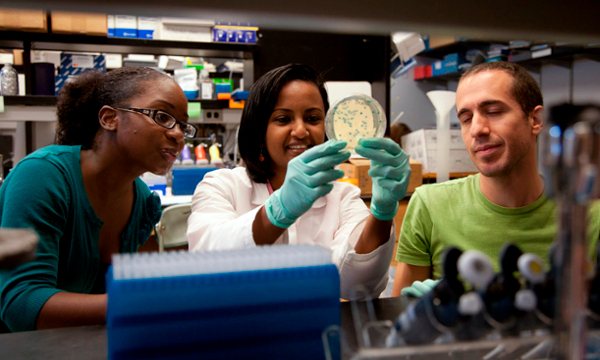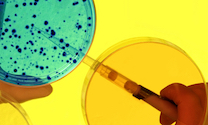Newsroom
New research by Emory researchers shows possible path to cardiac regeneration
Researchers at Emory School of Medicine and elsewhere recently identified a single protein that plays an important role in regulating heart muscle cells responsible for the contraction of the heart. Heart disease is an important cause of mortality worldwide, but when muscle cells known as cardiomyocytes are lost in heart disease, the heart has only limited ability to replace them.
The research team, led by Young-sup Yoon, PhD, professor of medicine and biomedical engineering at Emory University School of Medicine, discovered the molecular process that allows CBX7, a protein present in the cell’s interior fluid known as cytoplasm, to function as a molecular switch, turning off growth of cardiomyocytes in the hearts of newborn mice. When the investigators transferred the CBX7 gene into the mice it reduced growth of cardiomyocytes; conversely, inactivating the same gene increased growth of the heart muscle cells. The study, recently published in the journal Circulation, is the first to demonstrate the role of CBX7 in regulating cardiomyocyte growth, making this protein an important potential target for cardiac regeneration.
Dr. Yoon is an MSP faculty member.
Emory researchers contribute to better understanding of shared immune responses to COVID
An international team of researchers at Emory, elsewhere in the U.S. and India recently reported on the molecular structure of three newly generated antibodies from individuals in India who recovered from COVID-19 during the first wave of the pandemic. The new antibodies strongly neutralized the SARS-CoV-2 Alpha and Delta variants, poorly neutralized Beta and failed to neutralize Omicron. The research, co-authored by a team including Anamika Patel, PhD, assistant professor of biochemistry, and Eric Ortlund, PhD, professor of biochemistry, was published recently in the journal Structure. The research detailed the precise molecular mechanisms by which all three antibodies targeted SARS-CoV-2 spike proteins, a key step in developing improved antibody therapies that are less vulnerable to viral mutation.
Their findings are a major contribution to a better understanding of the biological processes that drive shared immune responses and how the Omicron variant managed to escape these. The authors say this is a critical component in fast-tracking vaccines and other therapies against multiple COVID-19 variants and subvariants that continually emerge and escape neutralization by existing antibodies and vaccines.
Dr. Ortlund is a faculty member in the BCDB and MSP programs.
The Plant Hunter's Quest for Nature's Next Medicines
MSP faculty member Dr. Cassandra Quave travels the world in her quest for nature's next medicines. Her work in ethnobotany is producing medications from plants.
The plant hunter’s quest for nature’s next medicines





